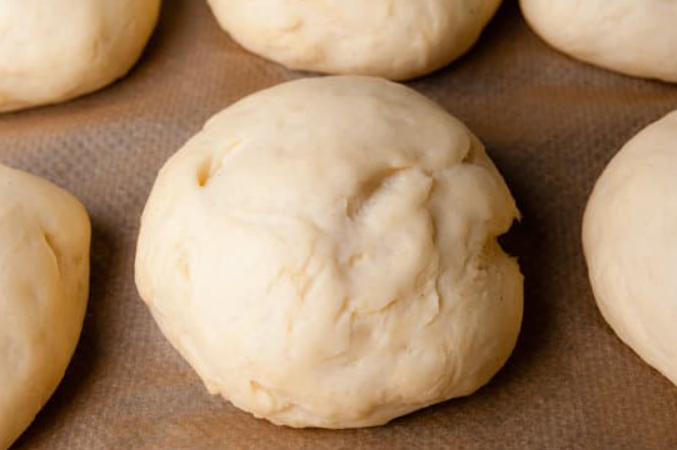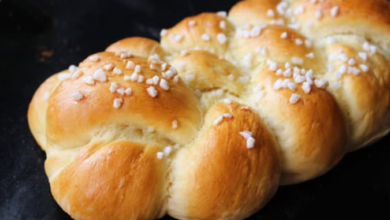Brioche dough: What happens if you overwork it?

What To Know
- Overworking brioche dough refers to excessive kneading or mixing, which can result in the development of gluten strands that are too tight and elastic.
- Knead lightly and gently, using the palm of your hand or a dough hook set to a low speed.
- Allow the dough to rest and rise for an extended period to give the gluten time to relax.
Brioche dough, known for its rich, buttery flavor and soft, fluffy texture, is a beloved ingredient in pastries and breads worldwide. However, novice bakers often wonder, “Can you overwork brioche dough?” The answer is yes, and understanding the consequences of overworking is crucial for achieving optimal results.
What is Overworking?
Overworking brioche dough refers to excessive kneading or mixing, which can result in the development of gluten strands that are too tight and elastic. This can lead to a tough, chewy texture and compromise the dough’s rise and crumb structure.
Signs of Overworked Brioche Dough
- Stiff and elastic: The dough becomes difficult to stretch and handle.
- Dense and crumbly: The baked product has a dense crumb with large holes.
- Lack of rise: The dough fails to rise properly due to the weakened gluten structure.
Causes of Overworking
- Excessive kneading: Hand-kneading or using a stand mixer for too long can overwork the dough.
- Incorrect kneading technique: Kneading with too much force or using a dough hook that is too aggressive can damage the gluten strands.
- Under-proofing: If the dough is not allowed to rest and rise properly before shaping, it can become overdeveloped during baking.
Consequences of Overworking
- Tough and chewy texture: The dough will lose its characteristic softness and become difficult to bite.
- Poor rise: The dough will not rise as well, resulting in a flat or dense baked product.
- Crumbly texture: The crumb will be coarse and crumbly, lacking the desired tenderness.
How to Avoid Overworking
- Follow the recipe: Stick to the specified kneading time and speed.
- Use the right kneading technique: Knead lightly and gently, using the palm of your hand or a dough hook set to a low speed.
- Check the dough’s consistency: Regularly assess the dough’s texture and stop kneading when it becomes smooth and elastic, but not too stiff.
- Proof the dough: Allow the dough to rest and rise before shaping to give the gluten time to relax and strengthen.
How to Fix Overworked Brioche Dough
Unfortunately, overworking cannot be fully reversed. However, there are steps you can take to mitigate the effects:
- Add liquid: Gradually add water or milk to the dough to soften it.
- Knead gently: Knead the dough for a few minutes to incorporate the liquid and improve its texture.
- Proof longer: Allow the dough to rest and rise for an extended period to give the gluten time to relax.
Troubleshooting Overworked Brioche Dough
- My dough is too stiff: Add liquid and knead gently.
- My dough won’t rise: Proof the dough longer and ensure it is in a warm environment.
- My baked brioche is dense: Reduce the kneading time and check the dough’s consistency before shaping.
Conclusion: The Art of Balancing
Working brioche dough requires a delicate balance between developing the gluten for structure and avoiding overworking it. By following the tips outlined in this guide, you can achieve perfectly balanced brioche dough that will produce light, fluffy, and flavorful pastries and breads.
FAQ
1. Can I overwork brioche dough by hand?
Yes, excessive hand-kneading can overwork the dough.
2. How can I tell if my brioche dough is overworked?
Check for stiffness, elasticity, and lack of rise.
3. What happens if I overwork brioche dough?
It will become tough, chewy, and have a poor rise.
4. Can I fix overdeveloped brioche dough?
Partially, by adding liquid, kneading gently, and proofing longer.
5. How long should I knead brioche dough?
Knead for 5-10 minutes by hand or on low speed with a stand mixer.
6. Why is my brioche dough not rising?
It may be overdeveloped, under-proofed, or in a cold environment.
7. How can I prevent overworking brioche dough?
Follow the recipe, use the correct kneading technique, and check the dough’s consistency regularly.



